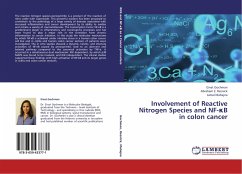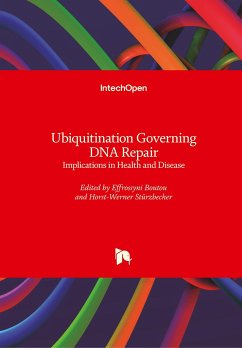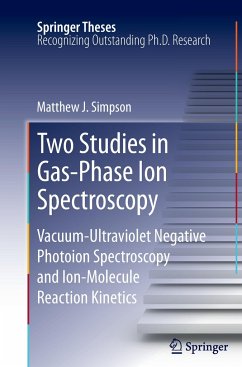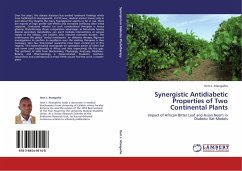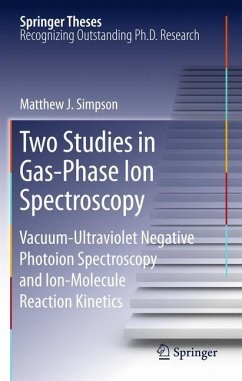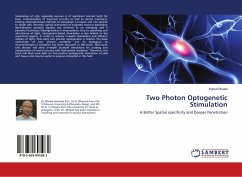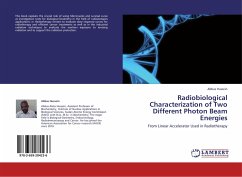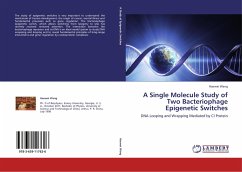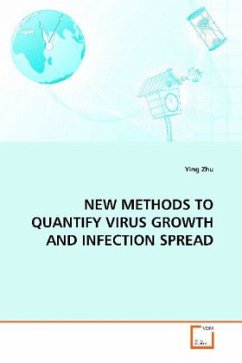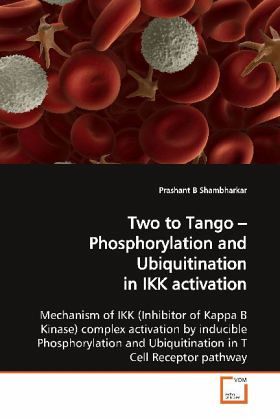
Two to Tango - Phosphorylation and Ubiquitination in IKK activation
Mechanism of IKK (Inhibitor of Kappa B Kinase) complex activation by inducible Phosphorylation and Ubiquitination in T Cell Receptor pathway
Versandkostenfrei!
Versandfertig in 6-10 Tagen
39,99 €
inkl. MwSt.

PAYBACK Punkte
20 °P sammeln!
Nuclear Factor kappa B (NF- B) is a major transcription factor that controls the survivaland functioning of cells. Deregulated NF- B is associated with auto-immune disorders and Cancer. NF- B in T cells decides the fate of an immune reaction. NF- B is turned on by T cell receptor (TCR) activation by a signaling cascade that involves CARMA1-BCL10-MALT1 (CBM) and Inhibitor of kappa B kinase (IKK) complex. TCR inducibly phosphorylates and ubiquitinates IKK complex to activate NF- B. However, the molecular mechanism of IKK complex activation and the events that interconnect CBM and IKK complexes a...
Nuclear Factor kappa B (NF- B) is a major
transcription factor that controls the survival
and functioning of cells. Deregulated
NF- B is associated with auto-immune
disorders and Cancer. NF- B in T cells decides the
fate of an immune reaction. NF- B is turned on by T
cell receptor (TCR) activation by a signaling
cascade that involves CARMA1-BCL10-MALT1 (CBM) and
Inhibitor of kappa B kinase (IKK) complex. TCR
inducibly phosphorylates and ubiquitinates IKK
complex to activate NF- B. However, the molecular
mechanism of IKK complex activation and the
events that interconnect CBM and IKK
complexes are not well understood. This study
evaluates the roles and requirements of IKK
phosphorylation and ubiquitination. This study finds
that the phosphorylation of IKK is mediated by PKC-
TAK1 complex and ubiquitination is mediated by CBM
complex independently. Thus, phosphorylation and
ubiquitination of the IKK complex are controlled by
two distinct signaling pathways. This study proposes
a working model for TCR induced NF- B activation,
which depicts that the CBM complex regulates IKK
ubiquitination, whereas PKC-TAK1 regulates IKK
phosphorylation.
transcription factor that controls the survival
and functioning of cells. Deregulated
NF- B is associated with auto-immune
disorders and Cancer. NF- B in T cells decides the
fate of an immune reaction. NF- B is turned on by T
cell receptor (TCR) activation by a signaling
cascade that involves CARMA1-BCL10-MALT1 (CBM) and
Inhibitor of kappa B kinase (IKK) complex. TCR
inducibly phosphorylates and ubiquitinates IKK
complex to activate NF- B. However, the molecular
mechanism of IKK complex activation and the
events that interconnect CBM and IKK
complexes are not well understood. This study
evaluates the roles and requirements of IKK
phosphorylation and ubiquitination. This study finds
that the phosphorylation of IKK is mediated by PKC-
TAK1 complex and ubiquitination is mediated by CBM
complex independently. Thus, phosphorylation and
ubiquitination of the IKK complex are controlled by
two distinct signaling pathways. This study proposes
a working model for TCR induced NF- B activation,
which depicts that the CBM complex regulates IKK
ubiquitination, whereas PKC-TAK1 regulates IKK
phosphorylation.



